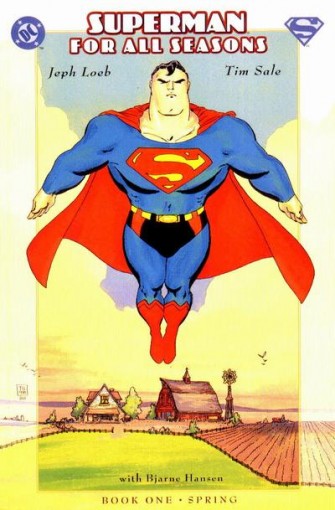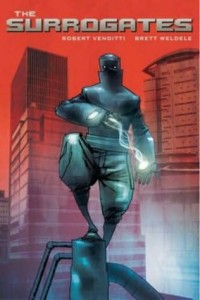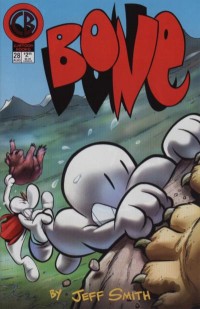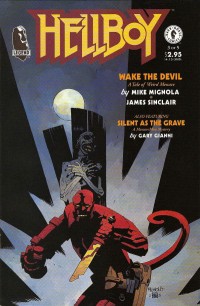
July 23, 2009
 Notes From The ICv2 Comics And Media Conference On CCI ‘09 Eve
Notes From The ICv2 Comics And Media Conference On CCI ‘09 Eve


What follows are notes and observations derived from my attendance at yesterday's Comics and Media Conference, organized by the comics business news and analysis site ICv2.com. The presentations were held from 1-5 PM at the San Diego Marriott Hotel and Marina. -- Tom Spurgeon
* the conference took place in one of the Marriott's ballrooms, with doors located right off of an elevator bank. It looked to be about 55-65 percent full for the bulk of it, with a number of badges still available generally even near conference's end (indicating people that RSVP'ed or even registered that didn't show). I sat in front of the
Tripwire guys, in front of the Top Shelf crew, and next to a late-arriving Shad Petosky, who look harried and wondered out loud during a break when the heart attack is going to come.
* the writer Jeph Loeb gave the keynote speech, an old-school walk through his personal relationship to comics emphasizing key issues that he encountered along the way and a cultural mechanism or two at work behind each one (a Superman comic as a serial adventure; the pre-Superman movie hype as providing a rooting interest in the movie's success). Because this was the media and comics panel, there were a lot of TV shows and movies talked in, but the high points were fairly recognizable. Loeb, for instance, looks at the wish-fulfillment provided by Marvel comic books as a way he processed the helplessness he felt in the face of his parents' divorce.
* some of Loeb's choices were interesting. He selected the
X-Men movie as more important than the earlier
Blade, for instance, oddly citing both its ability to put a number of superheroes on the screen at once and the star-making performance of actor Hugh Jackman as Wolverine. He also cited its ability to make a cohesive movie from elements of a comic book that weren't a part of wider culture like the Superman movie was. I wonder about this to a certain extent, in that I wonder if 25 years of X-Men comics and cartoons hadn't penetrated into the subconscious mass culture to the point that a Superman had a decade earlier to the extent that our culture currently processes things, but that's a conversation better left to being stoned and sitting in one's dormitory hallway.
* although Loeb's speech was traditional in a way with its emphasis on "modern mythology," there were some interesting notions curling at the edges. For instance, he talked about the face that everyone knows the story of Cinderella and suggests that a similar cultural consciousness exists around Superman, even pointing out what people knew about that character (came from outer space, could fly, vague notions of Lex Luthor and Lois Lane) going into the TV show
Smallville. I wish he had looked at this in terms of hit movies like Iron Man, which seem to me depend less on mythological resonance or their having permeated the culture than an easy to understand concept that sounds appealing. I think "Iron Man" is fairly easy to understand, all things told.

* Heidi MacDonald interviewed the net two subjects, both "test cases" for a comics work's journey into Hollywood development. Top Shelf Publisher Chris Staros and writer Robert Venditti of the forthcoming
The Surrogates went first, and I wasn't aware of the lovely backstory there: Venditti came to work for Top Shelf as a warehouse employee during their big money plea from several years ago, and both actively sought the advice and patronage of his employers while also believing that his work wasn't exactly suited for their line.
* the main things that Staros and Venditti stressed were the vast chasm between verbal interest and actually getting a film made, the ability to assemble a team of people to make the development process easier rather than relying on the strength of a pitch all by itself, the measured quality of that process and how to keep an even emotional keel during its ups and downs, researching what is easy for the entertainment companies to give up and what is not traditional they change so as to focus one's energies during the long negotiation process and winnable battles, and Venditti's feelings of gratitude upon seeing so many talented people working to make his creation come alive on screen.
* one element that I thought was interesting is how Staros and Top Shelf seemed well-prepared to move into this kind of venture. When Staros and Venditti talked about their personal friendship allowing them a sort of common cause and platform from which to negotiate, it struck me that that could cover a multiple of i-dotting and t-crossing sins. But when I asked if the venture had changed anything about Top Shelf's standard contract, Staros insisted it hadn't in any way, which impressed me. He also pointed out that the reason "Productions" was in the company title was because they wanted to move into wider entertainment areas almost from the start, which I hadn't known.
* Jeff Smith's interview with MacDonald was memorably for the most part in that it was frequently funny, with several stories of Hollywood overtures regarding the
Bone property, most of which failed because of inflexibility regarding elements of control over which Smith had no intention of letting go: the fact that the didn't want a musical number of the kind that were popular in animated films, and the core emphasis on the story on Fone Bone, Phoney Bone and Smiley Bone as opposed to the more traditional elements like Thorn and Gran'ma Ben.

* one thing Smith said struck me -- that he carried core principles of the self-publishing movement into these negotiations and that many of those came from the Creator's Bill of Rights,
which is over 20 years old now. I'm not sure why that hits me as noteworthy, but it does. Seriously, if you extend
back 21 years from that document, you're talking the height of the Lee/Kirby era at Marvel.
* a fascinating part of Smith's interview is that they had planned at one point to pursue a
Bone film by replicating what big-studios do in farming out scenes to smaller animation studios, basically a farm system without a big-league club but funding mechanisms to include the government of France kicking in some money if a French company or two were among the hired. Smith referred to it as a "virtual animation studio."
* Smith repeated something Venditti said in that it was easier to negotiate with film companies when
Bone was completed, both in terms of what they had to present to such interested parties and emotionally so due to the fact that even if a film went sour the book existed on its own merits.
* Smith noted that the
Bone film is currently back in development, and that while their deal was made in part after bringing an agent aboard he wasn't certain having an agent earlier would have changed the tenor of any previous negotiation. He also said that it could always go south, because, "we're talking about me." He noted that his past flirtations with Hollywood had left enough of a sour impression that he was brought up as a bad example to other comics creators and that people had frequently told stories back to him about some of the negotiations that went badly. He mentioned with a laugh that one of the things folks didn't seem to like is that he talked about the bad experiences so openly.
* Smith said that there had been on average
weekly calls of interest in movies rights to the work over a 14-year period.
* he was much more tight-lipped about movie possibilities for the ongoing
RASL, although Smith did mention in passing that the agent that helped put together the
Bone deal was originally contacted in order to represent
RASL.
* the crowd was mostly invested and involved for the duration of the conference. There was talking between the final two panels mentioned below, and a break extended into the regular San Diego meet and chatter a bit longer than I suspect host Milton Griepp would have ideally liked, but mostly it moved along. It was odd to me to see a room mostly media professionals texting openly during other people's presentations -- as no one in the room was a high-ranking military official or a doctor, I can't imagine anything was so important you'd need to do that right out where someone could watch you do it. But that's probably schoolmarmish of me.
* a panel on transmedia storytelling followed, with participants Nick Barrucci, Robin Brenner, Greg Goldstein, Jeff Gomez, Jim Killen and with Milton Griepp moderating. This basically broke down into a few panels, some of which overlapped and some of which didn't.
* Brenner (a librarian) and Killen (buyer for Barnes and Noble) talked a lot about what they were seeing from their customers, what was popular and what was keeping people coming back in terms of franchises that were popular elsewhere and franchises that might not have so much juice right now. Killen noted, for instance, that Joss Whedon's decision to make his comics-only
Buffy Season 8 venture canonical had not only attracted readers to those book but also to omnibus material put together by Dark Horse from earlier material that may or may not -- and mostly is not -- considered part of the "official"
Buffy story. Brenner had a great point when she talked about franchises have a longer life than they used to, both from the need for repeats on cable television but also because of DVD set sales -- she gets teen customers for the Whedon material that could not possibly have fully understood the series if they watched them while they were on.
* Barrucci and Greg Goldstein provided a great deal of insight into their publishing companies' forays into licensing character. Both emphasized putting together the comics aspect of it as vitally important -- few if any licenses are strong enough to carry weak execution -- and how each company (Dynamite with Lone Ranger; IDW with Star Trek) benefited by becoming a licensing partner with an entertainment property on a down cycle in terms of overall impact. Each man poo-poohed the idea that an actor or writer attached to a project was a good idea, Barrucci saying it was usually a detriment to comics overall and Goldstein pointing out it was unfair to be biased to actors that might be able to contribute to an effective comic simply because they were actors.
* Jeff Gomez was on the panel, I think, mostly to scare the crap out of me. He was by far the person most invested in the idea of storytelling on a number of levels, including original contributions from licensing partners, such as how the
Star Wars comics have told stories that have become part of that franchise's overall official story and so on. He presented a personal history of cross-platform storytelling whose first two steps were Japanese post-War economic recovery and the
Blair Witch project and rhapsodized about things like "transmedia stringers" and the fact that his company was moving from the marketing end of things to being involved from the very beginning in terms of shaping different projects.
* a theme at the end that fans decide on when something is official and something isn't rung hollow to me -- Barrucci was the only one who provided examples, and they seemed kind of distant and obscure compared to other processes by which something receives the "canonical" tag. A more interesting notion I think came from Brenner in that fan fiction had created an
expectation of extended interaction with a property that these efforts were able to fulfill. A kind of "if you don't give them more, they will make their own" construction.

* a final panel on "Comics After Hollywood" consisted of Matt Hawkins, Rick Jacobs, Jeff Katz, Mike Mignola and Joe Nozemack with Tom McLean moderating. This was mostly about the state of deal-making and related successes that could be had now that media companies had become more interested in comics, and issues like whether or not that was sustainable or something that was simply peaking now or both.
* I had to leave about 20 minutes in, but two things struck me: one is that Jeff Katz of American Original has the gift of gab, and should be able to rely on that alone for a place at the comics table for as long as he has one. He looks like a cross between Guillermo Del Toro and Ivan Brunetti, and spent the first ten minutes of the panel reminding those in attendance that media company interest was solely financial and had a desperate air in part because the entertainment industry may be due a massive contraction in size over the next several months.
* the other noteworthy element of the final panel as far as I got into it before having to catch a train was that Mike Mignola provided a sharp contrast to Jeff Smith's experience -- he made his movie deal in large part on faith, and without a director interested in his involvement and a confluence of other factors could have been a much less rewarding experience. He also spoke directly to the universes of difference in public perception that comes with a movie that opens on 2500+ screens, noted that his movie actually sold books where some others hadn't (Matt Hawkins from Top Cow said that his company sold more
Wanted trades over the last several months than everything else they offer
combined), and said that his books exist in the shadown of that enterprise to a certain extent.
* Mignola also said that the day he signed the movie deal he went home and created another character in case he had just ruined the first one. I wonder if after I left someone from the audience asked if that character might be available for license.
* that was it for me; I'll try to go back over my notes and rewrite this at some point, but that was the gist of the day. I enjoyed it. Also in attendance were folks like Kiel Phegley (a little rubber-legged from a night sleeping on
CBR's boat, but sporting a fine-looking tie), Calvin Reid (who told me it's the "best time of the year -- San Diego time"), the always-enjoyable Joe Rybandt (who decided not to punch me in the jaw as he had every right to do), Arie Kaplan and Douglas Wolk. Wolk at one point caught me eye because I swear he had taken out the entire contents of his swag bag and placed it in front of him (Douglas, tell me if I'm wrong; I thought it was great). For the record, mine was a pen, a notepad, a 2008
Tripwire annual, a coffee tumbler with the named BuchalterNemer on it, an ICv2 Insider's Guide, and two hardcover books:
Mouse Guard: Winter 1152 and
Gunnerkrigg Court Vol. 1.
posted 8:20 am PST |
Permalink
Daily Blog Archives
November 2019
October 2019
September 2019
August 2019
July 2019
Full Archives


